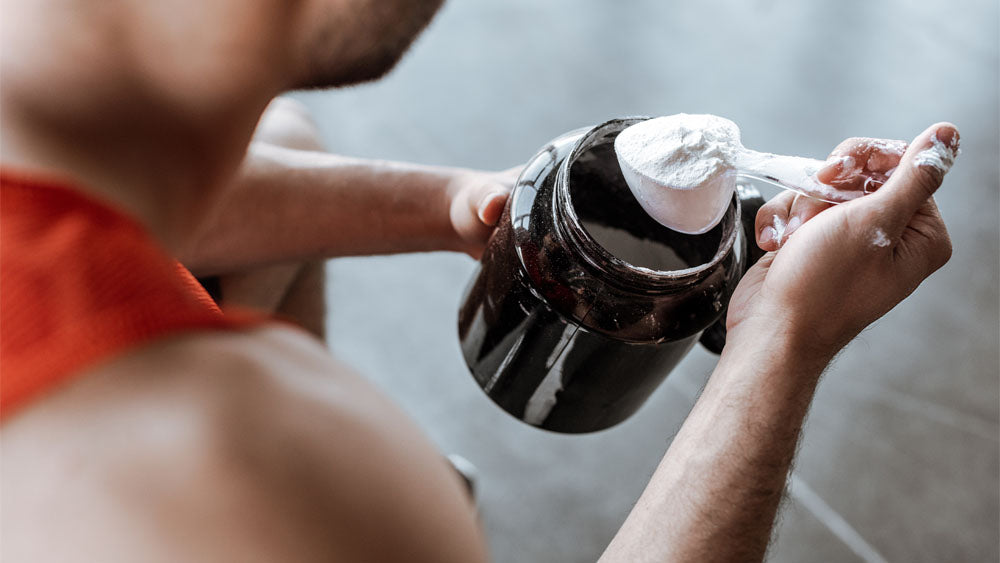Why Is Creatine So Popular?
Creatine has cemented its place as one of the most popular and widely researched supplements in the fitness world. Its benefits extend far beyond muscle growth, making it a staple for athletes, gym enthusiasts, and even those looking to improve cognitive function. So why has creatine earned such a loyal following?
The Many Benefits of Creatine
Creatine is known for its ability to enhance various aspects of athletic performance. Not only does it help achieve a fuller, more defined physique, but it also supports lean muscle growth, boosts strength and endurance, and aids in faster muscle recovery. Whether you're a beginner or an experienced athlete, creatine can significantly contribute to improving performance.
Supported by decades of research, creatine remains one of the few supplements with consistent evidence of its effectiveness. Its versatility allows athletes across various sports—from bodybuilders to endurance runners—to integrate it into their regimen to maximize performance.
How Creatine Works
At its core, creatine’s power lies in its ability to boost the body’s production of adenosine triphosphate (ATP). ATP is the primary source of energy for muscle contractions. During high-intensity exercise, ATP levels deplete quickly. By increasing ATP production, creatine enables muscles to work harder for longer, reducing fatigue and allowing for better endurance and more intense workouts.
Moreover, creatine draws water into muscle cells, improving hydration and aiding in muscle cell volumization, which helps maintain endurance throughout strenuous activities.
Loading & Maintenance Phases
When starting a creatine regimen, many choose to go through two phases: a loading phase and a maintenance phase. The loading phase typically involves taking 15-20 grams of creatine daily for about 5-7 days to saturate the muscles quickly. After this period, the maintenance phase involves taking a lower daily dose, usually 3-5 grams, to sustain creatine levels.
However, loading isn't mandatory. Skipping straight to the maintenance phase can also help you achieve creatine saturation over time, though it may take longer.
Common Misconceptions About Creatine
Despite its numerous benefits, several misconceptions surround creatine, particularly regarding its safety and suitability. Here are a few myths that deserve clarification:
- Creatine is unnatural: In reality, creatine is a naturally occurring compound found in foods like red meat and fish. The body also produces it in small amounts. However, obtaining sufficient creatine solely from food can be difficult, which is why supplementation is common.
- Creatine causes dehydration or kidney damage: Research has consistently disproved claims that creatine causes dehydration, kidney damage, or other health issues, provided it's taken within recommended doses.
- Creatine makes women bulky: The belief that creatine leads to bulkiness, particularly in women, is inaccurate. Women typically experience modest muscle gains from creatine supplementation, as they have lower testosterone levels compared to men.
- Creatine is only for bodybuilders: While bodybuilders often use creatine to increase muscle mass, its benefits extend to athletes involved in high-intensity sports like sprinting, long-distance running, and team sports. Creatine also enhances strength, power, and endurance in these activities.
- Creatine is just for physical performance: Recent studies suggest that creatine may benefit cognitive function and brain health, making it even more appealing as a supplement beyond the gym.
Finding the Right Creatine
Choosing the right type of creatine can depend on individual goals and preferences. Here are a few options available in the market:
- Creatine Monohydrate: The most researched and commonly used form of creatine. It promotes lean muscle growth, boosts strength, and speeds up recovery.
- Creatine HCL: A more concentrated version, offering greater solubility and less water retention, making it ideal for those concerned about bloating.
- Crea-B-Taine: This blend combines creatine with betaine anhydrous, a compound known to improve muscle strength and power while supporting lean muscle mass.
- Crea-Force: A combination of creatine monohydrate and betaine anhydrous, enhanced with beta-alanine and taurine to improve ATP production and increase power output.
- Anabolic Whey: A protein shake infused with creatine to boost muscle growth and recovery, perfect for post-workout use.
Conclusion: Why Creatine Endures
Creatine's popularity shows no signs of slowing down. With a wealth of research supporting its efficacy, it offers numerous benefits across different fitness goals, from muscle growth and endurance to recovery and cognitive support. Its accessibility, affordability, and proven safety make it a go-to supplement for both amateur and professional athletes.
As with any supplement, individual results may vary based on factors like genetics, overall health, and workout intensity. Consistency is key, and consulting a healthcare professional before starting creatine can help ensure safe and effective use.

